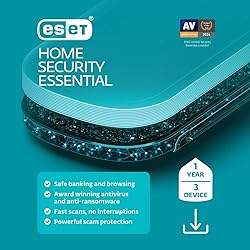VPN Speed vs Security: Finding the Right Balance
VPN speed vs security is a crucial consideration for individuals and organizations looking to protect their online activities without sacrificing performance. Virtual Private Networks (VPNs) have become essential tools for safeguarding personal data, bypassing geo-restrictions, and ensuring private browsing. However, choosing the right VPN service often involves weighing the trade-off between fast connection speeds and robust security features. Understanding how these two factors relate can help users make informed decisions that fit their unique needs.
How VPNs Work: A Quick Primer
At its core, a VPN works by encrypting your internet connection and routing it through remote servers. This process masks your IP address and shields your data from hackers, Internet Service Providers (ISPs), and other potential threats. While the benefits of VPN security are undeniable, the encryption and redirection of your data can result in slower browsing speeds. Whether you’re streaming, gaming, or telecommuting, finding a balance between VPN speed vs security is vital for an optimal online experience.
Factors Affecting VPN Speed
To understand the speed side of the equation, it’s important to consider what affects VPN performance:
– Server Distance: The further your data travels to reach a VPN server, the more potential there is for latency.
– Encryption Strength: Stronger encryption (like AES-256) provides higher security, but it requires more processing power, which can slow down your connection.
– Server Load and Capacity: Using overcrowded VPN servers often results in reduced speeds. Good providers regularly upgrade server capacity to support user demand.
– VPN Protocols: Different protocols (e.g., OpenVPN, WireGuard, IKEv2) offer varying balances of speed and security. Modern protocols like WireGuard are both fast and secure, while legacy options may lean more toward security at the expense of speed.
– Internet Connection: The baseline speed of your own internet connection plays a significant role when using a VPN.
VPN Speed vs Security: Which Should You Prioritize?
When Speed Matters Most
If your primary activities include streaming high-definition video, online gaming, or video conferencing, fast VPN speeds are essential. In these scenarios, a slight compromise on encryption (opting for AES-128 instead of AES-256, for instance) may be acceptable if privacy is less of a concern than performance.
Tips for improving VPN speed:
– Select servers closer to your physical location.
– Choose VPN services with optimized streaming or gaming servers.
– Use faster protocols like WireGuard or IKEv2.
When Security is Paramount
For users handling sensitive information—like journalists, business professionals, or those accessing public Wi-Fi—prioritizing security is critical. In these cases, accepting some reduction in speed to guarantee data confidentiality and integrity is usually the best approach.
Essential security features:
– Military-grade encryption (AES-256 or higher)
– Kill switch functionality
– No-logs policy
– Multi-hop or double VPN (routing through multiple servers)
– DNS leak protection
Finding the Right Balance for Your Needs
Ultimately, the ideal mix of VPN speed vs security depends on your unique requirements. Many reputable VPN providers allow users to customize settings, enabling them to strike the right balance. For instance, you might use a high-speed protocol with strong but not maximum encryption for everyday browsing and switch to the most secure option when conducting sensitive transactions.
It’s important to test different servers, protocols, and configuration settings. Most premium VPNs offer detailed setup guides, server recommendations, and 24/7 support to help users optimize their experience.
Best Practices for Maintaining Performance and Protection
– Keep your VPN client updated: Updates often bring performance improvements and necessary security patches.
– Limit simultaneous connections: Too many devices connected at once can reduce overall speed.
– Monitor VPN performance: Use built-in tools or external speed tests regularly.
– Research before you subscribe: Thoroughly review privacy policies, independent audits, and user feedback.
Final Thoughts
Navigating the debate around VPN speed vs security is all about assessing your priorities and understanding how VPN technology works. By choosing a reputable provider, customizing your settings, and staying informed, you can enjoy both safe and smooth browsing. Remember, neither speed nor security has to be fully sacrificed—today’s best VPN services make it possible to achieve the optimal balance for your digital life.


